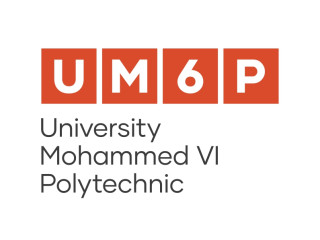Entreprise
Mohammed VI Polytechnic University is an institution dedicated to research and innovation in Africa and aims to position itself among world-renowned universities in its fields The University is engaged in economic and human development and puts research and innovation at the forefront of African development. A mechanism that enables it to consolidate Morocco’s frontline position in these fields, in a unique partnership-based approach and boosting skills training relevant for the future of Africa. Located in the municipality of Benguerir, in the very heart of the Green City, Mohammed VI Polytechnic University aspires to leave its mark nationally, continentally, and globally.
Adresse
Lot 660, Hay Moulay Rachid, Ben Guerir 43150
Poste
Department: AgroBiosciences program, College for Sustainable Agriculture and Environmental Science, Mohammed VI Polytechnic University, Benguerir, Morocco.
Project Background
Quinoa (Chenopodium quinoa Wild.) is a very nutritious food that has been grown for thousands of years in South America. Quinoa grain has a balanced amino acid profile and higher protein content than wheat, barley, and soybean. It was recently introduced to Morocco, where it has demonstrated excellent adaptation and drought tolerance in dryland parts of Morocco. Changing precipitation patterns, rising atmospheric CO2 levels, and elevated temperatures all have a substantial influence on agricultural productivity as well as agricultural insect pests. insects can be impacted by climatic changes in a number of ways. In new introduced crop, many insects’ pests can adapt quickly to this change. Our recent surveys showed that quinoa attracts a diversity of leaf eating and sap sucking insects that can directly harm quinoa plants at various growth stages. This project's goals include identifying the major and minor insect pests and providing a fundamental comprehension of how they interact with the quinoa plant. A combination of genetic resistance, planting date, botanical pesticides, and biological control will be developed as sustainable integrated pest management strategy against the main quinoa insect pest.
Key duties:
The PhD will be expected to:
- Conduct research as part of the project team
- Identification of the main/minor insect pests and natural enemies
- Screening for resistance under field, greenhouse and laboratory conditions.
- Understanding of mechanisms of resistance involved in main insect pest of quinoa (metabolomic and genetic).
- Publish in high impact journals in the field.
Applications and selection procedure:
Applications must be submitted on the hiring platform.
The application folder must contain:
- A cover letter indicating the position applied for and the main research interests and motivations.
- A detailed CV.
- Contact information of 2 references
The candidates will be shortlisted and will be invited to an interview.
Profile recherché
Criteria of the candidate
- MSc. in biology, plant protection or comparable field
- Knowledge in insect rearing, analytical tools.
- Excellent knowledge in English and French
- High motivation, teamwork capabilities, and communication skills


